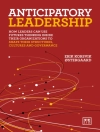Seizing opportunities, inventing new products, transforming markets–entrepreneurs are an important and well-documented part of the private sector landscape. Do they have counterparts in the public sphere? The authors argue that they do, and test their argument by focusing on agents of dynamic political change in suburbs across the United States, where much of the entrepreneurial activity in American politics occurs. The public entrepreneurs they identify are most often mayors, city managers, or individual citizens. These entrepreneurs develop innovative ideas and implement new service and tax arrangements where existing administrative practices and budgetary allocations prove inadequate to meet a range of problems, from economic development to the racial transition of neighborhoods. How do public entrepreneurs emerge? How much does the future of urban development depend on them? This book answers these questions, using data from over 1, 000 local governments.
The emergence of public entrepreneurs depends on a set of familiar cost-benefit calculations. Like private sector risk-takers, public entrepreneurs exploit opportunities emerging from imperfect markets for public goods, from collective-action problems that impede private solutions, and from situations where information is costly and the supply of services is uneven. The authors augment their quantitative analysis with ten case studies and show that bottom-up change driven by politicians, public managers, and other local agents obeys regular and predictable rules.
Sobre o autor
Mark Schneider is Professor of Political Science, and
Paul Teske is Assistant Professor of Political Science, both at the State University of New York, Stony Brook.
Michael Mintrom is an Assistant Professor of Political Science, with a joint appointment in the Institute for Public Policy and Social Research, at Michigan State University.












